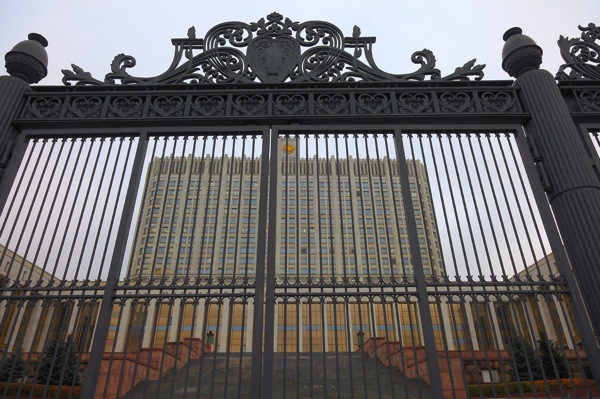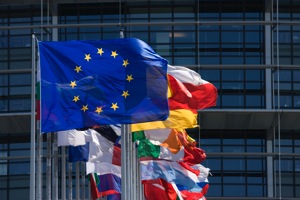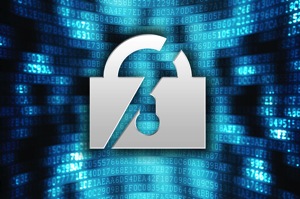Chaos Computer Club censored (and me too)
As a result of the "Great Firewall of Britain" the Chaos Computer Club discovered it is being blocked by Verifone. It turns out that ThePrivacyBlog is too!
Read MoreAs a result of the "Great Firewall of Britain" the Chaos Computer Club discovered it is being blocked by Verifone. It turns out that ThePrivacyBlog is too!
Read More Engineers at Golden Frog recently discovered that Cricket wireless was automatically disabling their email encryption.
Engineers at Golden Frog recently discovered that Cricket wireless was automatically disabling their email encryption.
It is not at all clear why they were doing this, but we do know how. When an email client attempts to make a secure connection to a server, it sends a STARTTLS command. If the server never sees the STARTTLS, then it assumes you just wanted an insecure connection.
The ISP can easily modify the data stream to remove the request, causing your computer to connect without any encryption. According to the standard, the user is supposed to get a warning about this, but in practice almost all software just fails silently.
The best way to protect yourself against this attack is to encrypt your email end to end. You can use SMIME, which is built into most email clients, or GPG. GPG can be stronger, but it is harder to use, and easy to misuse. Either will significantly improve your security.
The next step is to use a VPN like Anonymizer.com to protect you against your ISP. It will also protect you against anyone else in the path between your computer and your VPN service. Unfortunately between them and the destination server, you are still vulnerable to any hostile ISPs.
https://www.youtube.com/watch?v=aHtVjZJxO_Q
[powerpress]
Some other articles on this attack: Arstechnica, & The Washington Post
Also read:
Lance Cottrell is the Founder and Chief Scientist of Anonymizer. Follow me on Facebook, Twitter, and Google+.
A new APT called DarkHotel conducts very targeted attacks against executives in Asian hotels. There are several things you can do to protect yourself.
Read More On September 24, the Russian Duma passed a bill moving the date on which all Internet services must host local data locally from Sept 1, 2016 to Jan 1, 2015. That is an effectively impossible timeline for international Internet companies, which is probably the whole point.
On September 24, the Russian Duma passed a bill moving the date on which all Internet services must host local data locally from Sept 1, 2016 to Jan 1, 2015. That is an effectively impossible timeline for international Internet companies, which is probably the whole point.
While the bill has not been finally passed, the remaining steps are mostly formality.
Russia is suggesting that foreign firms could rent infrastructure, if they will have no time to build, giving Russia even stronger leverage.
My original post on the law was back in July, and I talked about other Russian Internet control and censorship activity here.
https://www.youtube.com/watch?v=FmH4hK05_78
Lance Cottrell is the Founder and Chief Scientist of Anonymizer. Follow me on Facebook, Twitter, and Google+.

Attacks On Anonymity Conflate Anonymous Speech With Trollish Behavior | Techdirt
It turns out that people say nasty things under their real names, and people also say valuable things anonymously.
Shocking!
It is amazing how often I see respected academics and other thinkers get incredibly sloppy in their reasoning when it comes to anonymity. They frequently assume correlations for which they have no evidence, and propose solutions with no consideration of the consequences.
I appreciate the rational perspective in articles like this.
Lance Cottrell is the Founder and Chief Scientist of Anonymizer. Follow me on Facebook, Twitter, and Google+.

Your Anonymous Posts to Secret Aren’t Anonymous After All | Threat Level | WIRED
This article describes a clever attack against Secret, the “anonymous” secret sharing app.
Their technique allows the attacker to isolate just a single target, so any posts seen are known to be from them. The company is working on detecting and preventing this attack, but it is a hard problem.
In general, any anonymity system needs to blend the activity of a number of users so that any observed activity could have originated from any of them. For effective anonymity the number needs to be large. Just pulling from the friends in my address book who also use Secret is way too small a group.
Lance Cottrell is the Founder and Chief Scientist of Anonymizer. Follow me on Facebook, Twitter, and Google+.

A New York district judge has ruled that Microsoft must comply with US search warrants for emails stored in European data centers. The argument is that as a US company, Microsoft is subject to the order, and because it has control of its European subsidiary which in turn has control of the data center in Europe, it should therefor comply.
This will put Microsoft, and many other US Internet companies, in a tricky place. The EU data protection laws are being expanded to explicitly bar EU subsidiaries of US companies from sending data outside the EU for law enforcement or intelligence purposes.
This also further undermines confidence in the security and privacy of data held by US Internet companies.
Microsoft ordered to hand over overseas email, throwing EU privacy rights in the fire | ZDNet
Lance Cottrell is the Founder and Chief Scientist of Anonymizer. Follow me on Facebook, Twitter, and Google+.
 Fake Google Digital Certificates Found & Confiscated
Fake Google Digital Certificates Found & Confiscated
On July 2, Google engineers discovered unauthorized certificates for Google domains in circulation. They had been issued by the National Informatics Center in India. They are a trusted sub-authority under the Indian Controller of Certifying Authorities (CCA). They in turn are part of the Microsoft Root Store of certificates, so just about any program running on Windows, including Explorer and Chrome, will trust the unauthorized certificates.
The power of this attack is that the holder of the private key to the certificate can impersonate secure Google servers. Your browser would not report any security alerts because the certificate is “properly” signed and trusted within the built in trust hierarchy.
Firefox does not have the CCA in its root certificate list and so is not affected. Likewise Mac OS, iOS, Android, and Chrome OS are safe from this particular incident as well.
It is not known exactly why these certificates were issued, but the obvious use would be national surveillance.
While this attack seems to be targeted to India and only impacts the Microsoft ecosystem, the larger problem is much more general. There is a long list of trusted certificate authorities, which in turn delegate trust to a vast number of sub-authorities, any of whom can trivially create certificates for any domain which would be trusted by your computer.
In this case the attack was detected quickly, but if it had been very narrowly targeted detection would have been very unlikely and monitoring could have continued over very long periods.
As an end user, you can install Certificate Patrol in Firefox to automatically detect when a website’s certificate is changed. This would detect this kind of attack.
On Chrome you should enable “Check for server certificate revocation” in advanced settings. That will at least allow quick protection once a certificate is compromised.
Lance Cottrell is the Founder and Chief Scientist of Anonymizer. Follow me on Facebook, Twitter, and Google+.
Update: Microsoft has issued an emergency patch removing trust from the compromised authority.

Continuing the pattern of Internet restrictions I talked about before, Russia has passed a new law requiring Internet companies to keep the personal data of Russians in data centers within the country. The ostensible reason for this is to protect Russians against US Government snooping (in the wake of the Snowden leaks), and against other outside threats.
The law requires that companies doing business in Russia must open data centers within the borders by 2016 or be blocked.
There are many ways for people motivated to bypass these restriction to access whatever they want, but most people will just use what is available, giving the Russian government more ability to monitor the activities of their citizens themselves.
Russia passes law requiring online personal data to be stored inside its borders | The Verge
Lance Cottrell is the Founder and Chief Scientist of Anonymizer. Follow me on Facebook, Twitter, and Google+.
 Attorney General's new war on encrypted web services - Security - Technology - News - iTnews.com.au
Australia’s Attorney-General’s department is proposing that all providers of Internet services ensure that they can decrypt user communications when so ordered. Any services where the provider has the keys will obviously be able to do this.
Attorney General's new war on encrypted web services - Security - Technology - News - iTnews.com.au
Australia’s Attorney-General’s department is proposing that all providers of Internet services ensure that they can decrypt user communications when so ordered. Any services where the provider has the keys will obviously be able to do this.
Australians may want to start to start taking steps to protect themselves now.
End to end encryption is your friend. At least that way, you need to be informed and compelled if they want access to your data.
Another important step is to get your “in the clear” communications into another jurisdiction using a VPN service like Anonymizer Universal.
Finally, let your voice be heard on this issue by reaching out to your members of parliament.
Lance Cottrell is the Founder and Chief Scientist of Anonymizer. Follow me on Facebook and Google+.
 Turkey passed legislation to allow the government to censor access to websites within four hours of receiving an allegation of privacy violations. WSJ Article behind paywall. CNET Article
The law also requires web hosts to store all traffic information for two years. While the putative purpose of the legislation is privacy protection, it is widely assumed that this is an attempt to grab more control of the Internet, which has been repeatedly blasted by the Turkish government reporting on government corruption and graft.
Turkey passed legislation to allow the government to censor access to websites within four hours of receiving an allegation of privacy violations. WSJ Article behind paywall. CNET Article
The law also requires web hosts to store all traffic information for two years. While the putative purpose of the legislation is privacy protection, it is widely assumed that this is an attempt to grab more control of the Internet, which has been repeatedly blasted by the Turkish government reporting on government corruption and graft.
As usual with these attempts at censorship, interested citizens can generally get around them. VPNs like Anonymizer Universal allow anyone to punch a hole through the national censorship firewalls to access any content.
I would be very interested to hear about efforts to block tools like Anonymizer in countries enforcing Internet censorship, like Turkey and the UK. Blocking of circumvention tools is already well documented in both China and Iran, and has been seen sporadically in many other countries.
Lance Cottrell is the Founder and Chief Scientist of Anonymizer. Follow me on Facebook and Google+.
The Internet has been buzzing with reports of the recently leaked NSA exploits, backdoors, and hacking / surveillance tools. The linked article is good example.
None of this should be news to anyone paying attention. Many similar hacking tools are available from vendors at conferences like BlackHat and DefCon.
We all know that zero-day exploits exist, and things like Stuxnet clearly show that governments collect them.
Intentionally introducing compromised crypto into the commercial stream has a long history, perhaps best demonstrated by the continued sales of Enigma machines to national governments long after it had been cracked by the US and others.
This reminds me of a quote I posted back in March. Brian Snow, former NSA Information Assurance Director said “Your cyber systems continue to function and serve you not due to the expertise of your security staff but solely due to the sufferance of your opponents.”
One can focus on making this difficult, but none of us should be under the illusion that we can make it impossible. If you have something that absolutely must be protected, and upon which your life or liberty depends, then you need to be taking drastic steps, including total air gaps.
For the rest of your activities, you can use email encryption, disk encryption, VPNs, and other tools to make it as difficult as possible for any adversary to easily vacuum up your information.
If you are of special interest, you may be individually targeted, in which case you should expect your opponent to succeed. Otherwise, someone hacking your computer, or planting a radio enabled USB dongle on your computer is the least of your worries. Your cell phone and social media activities are already hemorrhaging information.
Lance Cottrell is the Founder and Chief Scientist of Anonymizer. Follow me on Facebook and Google+.
The South China Morning Post reports that the ban on Facebook, Twitter, the New York Times, and many other sites, will be lifted, but only in the Shanghai free-trade zone.
The information came from anonymous government sources within China. The purpose is to make the zone more attractive to foreign companies and workers who expect open Internet access. The sources say that the more open access may be expanded into the surrounding territory if the experiment is successful.
It will be interesting to see if this actually comes to pass.
Two questions occur to me. First, will the free-trade zone be considered to be outside the firewall, and hard to access from within the rest of China? Second, is this as much about surveillance of activity on those websites as it is about providing free access?
Another from the "if the data exists, it will get compromised" file.
This article from the Washington Post talks about an interesting case of counter surveillance hacking.
In 2010, Google disclosed that Chinese hackers breached Google's servers. What only recently came to light was that one of the things compromised was a database containing information about government requests for email records.
Former government officials speculate that they may have been looking for indications of which of their agents had been discovered. If there were records of US government requests for information on any of their agents, it would be evidence that those agents had been exposed. This would allow the Chinese to shut down operations to prevent further exposure and to get those agents out of the country before they could be picked up.
I had not thought about subpoenas and national security letters being a counter intelligence treasure trove, but it makes perfect sense.
Because Google / Gmail are so widely used, they present a huge and valuable target for attackers. Good information on almost any target is likely to live within their databases.
Wired reports on a move by the Japanese government to ask websites to block users who "abuse" TOR.
I assume that TOR is being used as an example, and it would apply to any secure privacy tool.
The interesting question is whether this is simply a foot in the door on the way to banning anonymity, or at least making its use evidence of evil intent.
Currently, public privacy services make little effort to hide themselves. Traffic from them is easily detected as being from an anonymity system. If blocking becomes common, many systems may start implementing more effective stealth systems, which would make filtering anonymity for security reasons even harder.
The Register has an article on Firefox black listing an SSL Certificate authority.
Certificates and certificate authorities are the underpinnings of our secure web infrastructure.
When you see the lock on your browser, it means that the session is encrypted and the site has presented a valid site certificate (so it is who it claims to be).
That site certificate is signed by one of many certificate authorities.
I see 86 certificate issuing authorities in my Firefox now.
Many of those certificate authorities have multiple signing certificates.
Additionally the certificate authorities can delegate to subordinate certificate authorities to sign site certificates.
Any certificate signed by any of these authorities or subordinate authorities is recognized as valid.
These entities are located all over the world, many under the control of oppressive governments (however you define that).
Certificate authorities can create certificates to enable man in the middle attacks, by signing keys purporting to be for a given website, but actually created and held by some other entity.
There are plugins like certificate patrol for Firefox that will tell you when a site you have visited before changes certificates or certificate authorities. Unfortunately this happens fairly frequently for legitimate reasons, such as when renewing certificates every year or few years.
Some certificate authorities are known or suspected to be working with various law enforcement entities to create false certificate for surveillance.
Here is how it works:
The government has certificate authority create a new certificate for a website.
The government then intercepts all sessions to that site with a server (at national level routers for example).
The server uses real site certificate to communicate with the real website securely.
The server uses the new fake certificate to communicate with user securely.
The server then has access to everything in the clear as it shuttles data between the two secure connections..
It can read and/or modify anything in the data stream.
Firefox is removing TeliaSonera’s certificate authority from the list in Firefox for this reason. Going forward no certificate issued by them will be recognized as valid. This will impact a large number of legitimate websites that have contracted with TeliaSonera, as well as preventing the fake certificates.
There is a lot of controversy about this. What is appropriate cooperation with law enforcement vs. supporting and enabling dictators.
In any case, this is a failure of the protocol. If the browser shows a certificate as valid when it has not come from the real website, then there has been a security failure.
The SSL key infrastructure is showing its age. It was “good enough” when there were only one or two certificate authorities and the certificates were not actually protecting anything of great importance. Now everyone relies heavily on the security of the web. Unfortunately, while it is broken, it is very hard to replace.
In the short term, installing a certificate checker like certificate patrol is probably a good idea, despite the number of false positives you will see.
In the longer term, there is a really hard problem to solve.
According to the Telegraph, the UK government is instituting a code of conduct for public WiFi which would require blocking of pornography to protect kids.
I see a couple of problems here.
1) Porn proliferates very quickly, so the blocking is likely to always be behind the curve, and kids are really good at getting around these kinds of blocks.
2) Some people will feel that things are allowed that should be blocked.
3) Inevitably legitimate websites will be blocked. A common example is breast feeding web sties, which frequently get caught in these kinds of nets.
4) Implementing this requires active monitoring of the activity on the WiFi which generally enables other kinds of surveillance.
Most home networks don't have filtering on the whole network, so kids at home would be exposed to raw Internet. The standard is generally to filter at the end device. It seems to me that would be the best option here.
Parents could choose exactly the blocking technology and philosophy they want to have applied, and it does not impact anyone else.
Cnet reports that an internal DEA document reveals that the DEA are unable to intercept text messages sent over Apple's iMessage protocol.
The protocol provides end to end encryption for messages between iOS and Mac OS X devices.
This is not to suggest that the encryption in iMessages is particularly good, but to contrast with standard text messages and voice calls which are completely unprotected within the phone company's networks.
It appears that an active man in the middle attack would be able to thwart the encryption, but would be significantly more effort. The lack of any kind of out of band channel authentication suggests that such an attack should not be too difficult.
If you really need to protect your chat messages, I suggest using a tool like Silent Text. They take some steps that make man in the middle attacks almost impossible.
Since relatively few of you had a chance to hear my talk at RSA, here is a re-recording I did of the presentation I uploaded to YouTube.
It runs just under 30 minutes.
The talk is the flip side of my usual presentations. I typically talk about how to be stealthy on the Internet. This time I was talking to network defenders about how to identify people using privacy technologies, and to use that information to help them strengthen their network defenses.
Enjoy!
Welcome to the February edition of The Privacy Blog Podcast. In this episode, I’ll discuss a topic that caught me by surprise in the recent weeks – the dark alleys of the Internet aren’t as scary as we once thought. According to Cisco’s Annual Security Report, the most common, trusted websites we visit everyday have the highest overall incidents of web malware encounters. For example, Cisco reports that online advertisements are 182 times more likely to infect you with malware than porn sites. Secondly, I’ll be talking about corporate anonymity issues, where the stakes are often extremely high due to real dollar-losses corporations could face. A few examples I’ll hit on are: competitive pricing research, search engine only pages for spoofing search results, trademark infringement, and research and development activities.
Hope you enjoy the episode. Please leave feedback and questions in the comments section of this post.